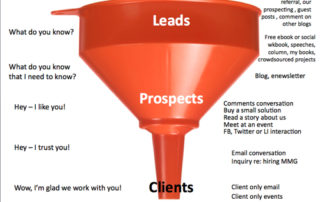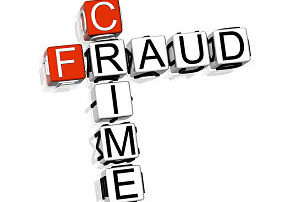Do you know your agency’s sales life cycle?
Every business has a sales life cycle and communications agencies (whether you're an ad agency, digital, PR, etc.) are no exception. It used to be pretty straightforward -- you either chased after a prospect or met them at some networking event or got a referral but the face to face happened early on. Today, an agency's sales cycle is 70+% done before the prospect ever reaches and even has an email interaction with the agency. Every agency needs to map out their sales funnel, understanding that the first three-quarters of it happens prior to contact. The visual shown here is my agency's (MMG) sales funnel. (If you click here, you can see it full sized). The left side of our sales life cycle shows the prospect's relationship to the agency at the time. It flows from I've never heard of you to I'm a customer. The question is how do you move a potential client through the funnel when you don't even know they're out there? You use your content marketing, social media, SEO and active prospecting to capture their fleeting attention and then you begin to serve up content that demonstrates that your expertise could help them achieve their business goals. Once they're paying attention to your smarts, you also need to give them a chance to get to know your agency's culture, values and what it's like to do business with you. Now, they start to like you. That's usually when they actually initiate contact and you have a shot at actively pursuing their account. As you can see by the bottom of the diagram -- you shouldn't leave current clients out of the equation. You need to be re-earning their business every [...]









